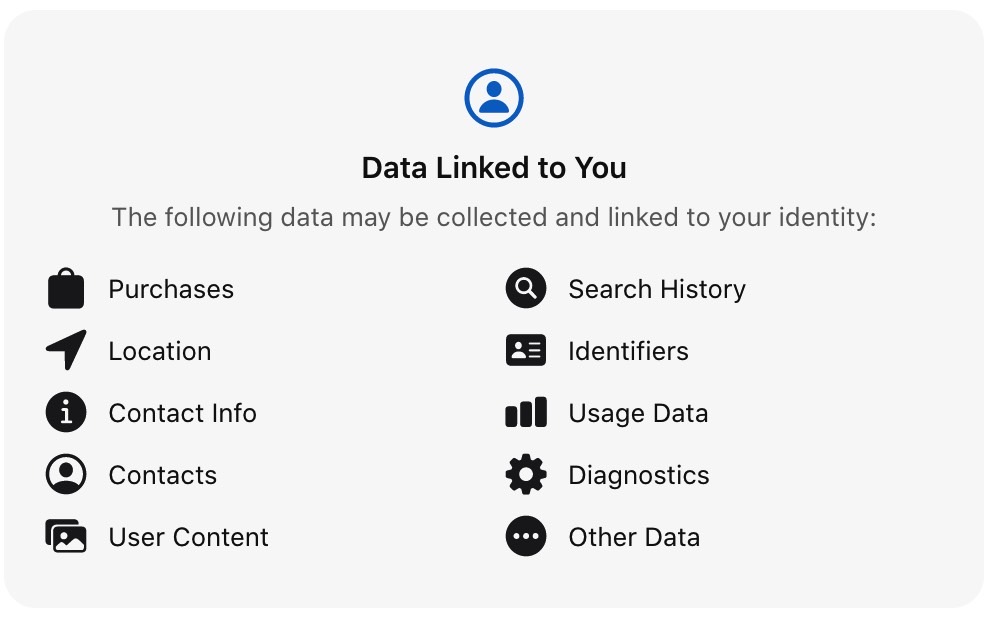Google Doesn't Want You To Update These Settings On Your Apple Device
- Apple's new app privacy listings in the App Store have sent shockwaves through the tech and advertising industries.
- The new app privacy descriptions spell out in much greater detail how apps use your data and track you.
- Google has been updating its apps to reflect these new descriptions in Apple's App Store, while Facebook has started a marketing campaign to convince people that its tracking is actually a good thing for users.
Most people have tended to regard the app privacy practices of big tech giants like Google and Facebook, for the longest time, with a kind of grudging acceptance that doesn't generally lead to any kind of big change in user behavior. Sort of like the way everyone mindlessly clicks on the terms of service acceptance button, even though no one bothers reading all the inscrutable legal jargon therein. We all know about the surveillance capitalism at the heart of Google and Facebook, and maybe we'll even proselytize a bit to try and get people we know to be less cavalier with their data, but then we go right back to wading through our Gmail accounts and swiping through our friends' Stories on Facebook-owned Instagram. Facebook CEO Mark Zuckerberg probably knows this better than anyone. His social network has committed so many staggeringly egregious privacy sins, yet he knows good and well that people on average tend to forget about it all soon enough and go right back to smashing that Like button and getting sucked back into your Instagram feed.
Apple's new iOS 14 privacy features, meanwhile, might — might — finally change all the stupid inertia at the heart of these behaviors. When the new features first started rolling out last fall, they sent nothing short of shockwaves through the advertising industry — and presented a threat to companies like Facebook, the whole revenue model of which is built around making money off of highly personalized ads (which is done in part by tracking your activity around the web, to make the Facebook ads even more targeted to you).
As we've explained in previous posts, Apple is now forcing app developers to show you all the personal data their app can collect, and why they collect that data. Apple won't bring the hammer down and stop them from the collection; they're just forcing the full disclosure of all that collection to users. And one reason why this has caused such an uproar is that it's, well, pretty stark to see it spelled out, in black and white, the level of data you've been unwittingly coughing up to some of your most-used apps.
Before we talk about actions you can take in response to what you read in Apple's new app privacy listings, let's first mention where they are and how you can find them.
First, search for, let's say, Gmail within Apple's App Store.
Tap the Gmail icon, and then on the next page you're shown, scroll down to "App Privacy." Here's what you're shown about Gmail, specifically:

Likewise, here's YouTube's App Privacy section (Google hasn't updated the App Privacy section for all of its apps yet, as of the time of this writing). Meantime, here are some things you can do specifically in response to anything you see that feels creepy in these App Privacy sections of Google-owned apps:
- Turn off Gmail's "Smart" features — things like Smart Compose and Smart Reply in emails. Yes, they're handy tools, but Google has to learn more about you through closer tracking in order to make those tools work well.
- Don't sign in to apps or websites via your Google account.
- Set your Google data to auto-delete.
- Also, turn off "location services" in your phone when you don't need it on.
This is just a starting point, of course, when it comes to steps you can take if you don't like some of the practices of your most-used apps that are now disclosed in more detail via Apple's new App Privacy labels. It should also go without saying, you can always take this opportunity, too, to be more intentional about the apps you download and use on a regular basis.
